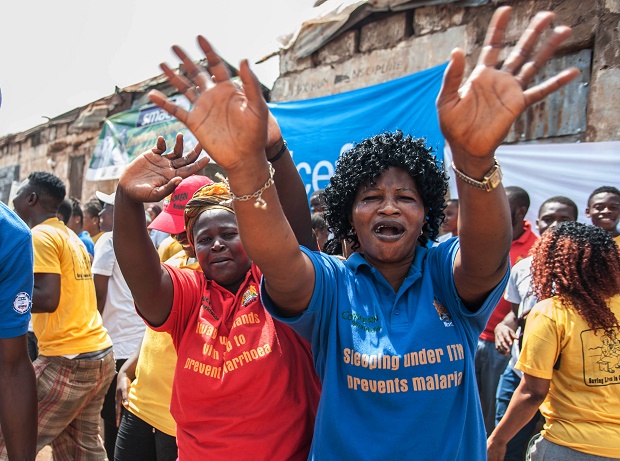Suspected death from Ebola in Sierra Leone—official

Women celebrate as their country is declared Ebola free in the city of Freetown Sierra Leone, Saturday, Nov. 7, 2015. AP Photo
FREETOWN, Sierra Leone—A woman in Sierra Leone is thought to have died from Ebola, officials said Thursday, just hours after the World Health Organization (WHO) declared an end to an epidemic of the disease.
READ: Celebrations as WHO declares Sierra Leone Ebola-free
The female student was taken ill in the northern village of Bamoi Luma near the Guinean border and died soon after, with an initial swab testing positive for Ebola, a senior health ministry official told AFP.
“Complete findings will be made known to the public by tomorrow (Friday),” he said, adding that further tests were under way.
Earlier Thursday the WHO said a two-year Ebola epidemic that killed 11,000 people and triggered a global health alert was over, with Liberia the last country to get the all-clear.
The deadliest outbreak in the history of the feared tropical virus wrecked the economies and health systems of the three worst-hit west African nations after it emerged in southern Guinea in December 2013.
READ: Sierra Leone’s last known Ebola patients leave hospital
At its peak, it devastated Guinea, Liberia and Sierra Leone, with bodies piling up in the streets and overwhelmed hospitals recording hundreds of new cases a week.
“A high-level team of ministry of health officials and key partners including the World Health Organization and the Atlanta-based Centre for Disease Control are in the area from the capital to undertake intensive investigations,” Sierra Leone government spokesman Abdulai Bayrayta told AFP following the suspected new case.
Rick Brennan, the WHO’s chief of emergency risk management, hailed the declaration of the end of the epidemic as an important milestone but said in Geneva that “the job is still not done” due to the persistence of the virus in survivors.
UN chief Ban Ki-moon also warned that the region can expect sporadic cases in the coming year but that “we also expect the potential and frequency of those flare-ups to decrease over time.”